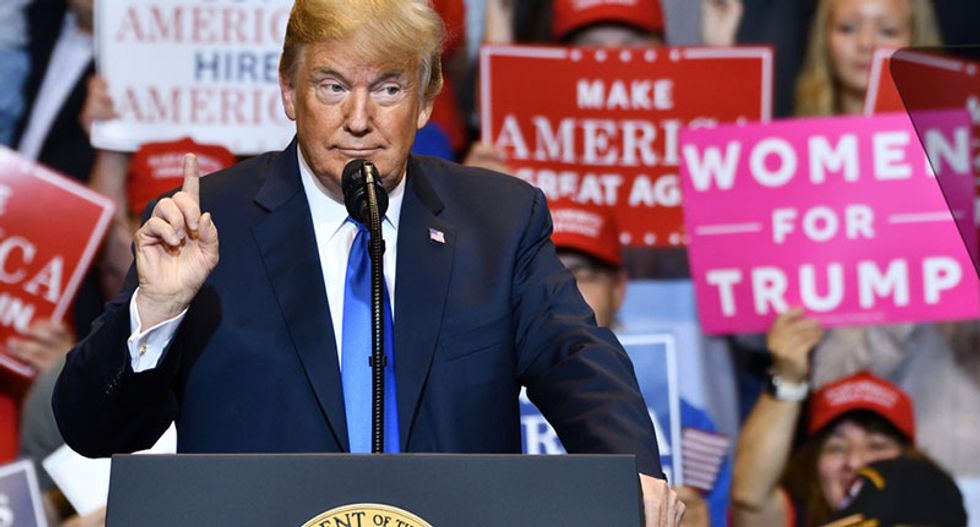An ‘urgent need for affirmation’: Washington Post columnist explains why Trump maintains such a strong hold on his base — even when he’s hurting them


Washington Post columnist Elizabeth Bruenig is not a fan of President Donald Trump’s policies, which she asserts have made life worse for Americans who are struggling financially. But in her most recent column, Bruenig explains why Trump has maintained such a firm grip on his base—even when his policies are hurting them.
Bruenig opens her column by describing the reactions Trump received after hugging an American flag during his speech at the recent Conservative Political Action Conference (CPAP) event in Maryland. Everyone from comedian Jimmy Kimmel to conservative CNN pundit S.E. Cupp, Bruenig writes, found Trump’s theatrics ridiculous.
Cupp, for example, wrote, “On behalf of the flag, I wanted to shout, ‘I beg your pardon, sir! Get your hands off of me!’”
Bruenig theorizes, however, that there might have been a method to Trump’s flag-hugging madness—and that he was catering to “his base’s urgent need for affirmation.”
“Trump’s effusive love may or may not be the result of calculated strategizing, but it’s not a bad tactic even though it’s rhetorically bizarre compared with most electoral speech,” Bruenig observes. “He seems to intuit that decent swaths of Americans struggle not only with a poverty of material resources— which his policies have worsened—but also, with a poverty of dignity and with emotional destitution that comes from being thought little of, mocked, ignored and dismissed by mainstream culture.”
Bruenig notes that “Trump’s brand of loving approval is always aimed at a narrow white” audience, but she emphasizes that he knows how to communicate with his diehard supporters even when his policies are harming them.
“Snuggling an American flag looks eccentric,” Bruenig writes. “But if one of your primary claims to pride is being an American, and you feel that liberal politicians, celebrities and pundits are constantly besmirching an important source of your dignity, it likely comes as a welcome reprieve.”
Bruenig concludes her column by asserting that as the 2020 presidential election moves along, the challenge of Democrats will be finding a nominee who can convince voters that he or she genuinely feels their pain.
“It seems that Trump, oftentimes obstinately callous and cruel, knows a thing or two about love—at least in its needful political applications,” Bruenig writes. “His love may well have been the engine of his strange rise and his continued grasp on his base. The question for 2020 is whether there’s a candidate available on the left who can or will convey a better, broader version of it— something grandly affirmative, but nonetheless sincere, that can tend to every wound.”